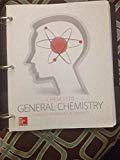
Interpretation: “It should be checked whether it is possible or not for two members of an isoelectronic series to have different magnetic properties..
Concept Introduction:
Atomic radius:
Atomic radius is the distance between the atomic nucleus and outermost electron of an atom. From the atomic radius, the size of atoms can be visualized. But there is no specific distance from nucleus to electron due to electron cloud around the atom does not have well-defined boundary.
Periodic Table: The available chemical elements are arranged considering their atomic number, the electronic configuration and their properties. The elements placed on the left of the table are metals and non-metals are placed on right side of the table.
In periodic table the horizontal rows are called periods and the vertical column are called group. There are seven periods and 18 groups present in the table and some of those groups are given particular name as follows,
Mass number: It is given by the total number of protons and the neutrons present in the nucleus of the element and it is denoted by symbol A. The subscript that lies on the left side of the symbol of the element represents the mass number.
Cation: Removal of electron from the atom results to form positively charged ion called cation.
Anion: Addition of electron to atom results to form negatively charged ion called anion.
The net charge present in the element denotes the presence or absence of electrons in the element.
In periodic table the horizontal rows are called periods and the vertical column are called group.
Isoelectronic species: are elements or ions that have the same or equal number of electrons.
Isoelectronic series: An isoelectronic series is a group of atoms or ions that have the same number of electrons.
Diamagnetic: Whenever two electrons are paired together in an orbital, they are diamagnetic
Paramagnetic: A paramagnetic electron is an unpaired electron.
Want to see the full answer?
Check out a sample textbook solution
Chapter 4 Solutions
Chemistry: Atoms First V1
- Select all molecules which are chiral. Brarrow_forwardUse the reaction coordinate diagram to answer the below questions. Type your answers into the answer box for each question. (Watch your spelling) Energy A B C D Reaction coordinate E A) Is the reaction step going from D to F endothermic or exothermic? A F G B) Does point D represent a reactant, product, intermediate or transition state? A/ C) Which step (step 1 or step 2) is the rate determining step? Aarrow_forward1. Using radii from Resource section 1 (p.901) and Born-Lande equation, calculate the lattice energy for PbS, which crystallizes in the NaCl structure. Then, use the Born-Haber cycle to obtain the value of lattice energy for PbS. You will need the following data following data: AH Pb(g) = 196 kJ/mol; AHƒ PbS = −98 kJ/mol; electron affinities for S(g)→S¯(g) is -201 kJ/mol; S¯(g) (g) is 640kJ/mol. Ionization energies for Pb are listed in Resource section 2, p.903. Remember that enthalpies of formation are calculated beginning with the elements in their standard states (S8 for sulfur). The formation of S2, AHF: S2 (g) = 535 kJ/mol. Compare the two values, and explain the difference. (8 points)arrow_forward
- In the answer box, type the number of maximum stereoisomers possible for the following compound. A H H COH OH = H C Br H.C OH CHarrow_forward7. Magnesium is found in nature in the form of carbonates and sulfates. One of the major natural sources of zinc is zinc blende (ZnS). Use relevant concepts of acid-base theory to explain this combination of cations and anions in these minerals. (2 points)arrow_forward6. AlF3 is insoluble in liquid HF but dissolves if NaF is present. When BF3 is added to the solution, AlF3 precipitates. Write out chemical processes and explain them using the principles of Lewis acid-base theory. (6 points)arrow_forward
- 5. Zinc oxide is amphoteric. Write out chemical reactions for dissolution of ZnO in HCl(aq) and in NaOH(aq). (3 points)arrow_forwardDraw the product(s) formed when alkene A is reacted with ozone, followed by Zn and H₂O. If no second product is formed, do not draw a structure in the second box. Higher Molecular Weight Product A Lower Molecular Weight Product draw structure ... draw structure ...arrow_forwardRank A - D in order of increasing rate of reaction with H2 and Pd/C. ب ب ب ب A B с Which option correctly ranks the alkenes in order of increasing rate of reaction with H₂ and Pd/C? О Barrow_forwardDraw the product of the following Sharpless epoxidation, including stereochemistry. Click the "draw structure" button to launch the drawing utility. -OH (CH3)3C-OOH Ti[OCH(CH3)2]4 (+)-DET draw structure ... Guidarrow_forwardWhat alkyne (or diyne) yields the following oxidative cleavage products? Click the "draw structure" button to launch the drawing utility. draw structure ... CO₂ + OHarrow_forwardlighting discharges in the atmosphere catalyze the conversion of nitrogen to nitric oxide. How many grams of nitrogen would be required to make 25.0 g of nitric oxide in this way ?arrow_forwardarrow_back_iosSEE MORE QUESTIONSarrow_forward_ios
 ChemistryChemistryISBN:9781305957404Author:Steven S. Zumdahl, Susan A. Zumdahl, Donald J. DeCostePublisher:Cengage Learning
ChemistryChemistryISBN:9781305957404Author:Steven S. Zumdahl, Susan A. Zumdahl, Donald J. DeCostePublisher:Cengage Learning ChemistryChemistryISBN:9781259911156Author:Raymond Chang Dr., Jason Overby ProfessorPublisher:McGraw-Hill Education
ChemistryChemistryISBN:9781259911156Author:Raymond Chang Dr., Jason Overby ProfessorPublisher:McGraw-Hill Education Principles of Instrumental AnalysisChemistryISBN:9781305577213Author:Douglas A. Skoog, F. James Holler, Stanley R. CrouchPublisher:Cengage Learning
Principles of Instrumental AnalysisChemistryISBN:9781305577213Author:Douglas A. Skoog, F. James Holler, Stanley R. CrouchPublisher:Cengage Learning Organic ChemistryChemistryISBN:9780078021558Author:Janice Gorzynski Smith Dr.Publisher:McGraw-Hill Education
Organic ChemistryChemistryISBN:9780078021558Author:Janice Gorzynski Smith Dr.Publisher:McGraw-Hill Education Chemistry: Principles and ReactionsChemistryISBN:9781305079373Author:William L. Masterton, Cecile N. HurleyPublisher:Cengage Learning
Chemistry: Principles and ReactionsChemistryISBN:9781305079373Author:William L. Masterton, Cecile N. HurleyPublisher:Cengage Learning Elementary Principles of Chemical Processes, Bind...ChemistryISBN:9781118431221Author:Richard M. Felder, Ronald W. Rousseau, Lisa G. BullardPublisher:WILEY
Elementary Principles of Chemical Processes, Bind...ChemistryISBN:9781118431221Author:Richard M. Felder, Ronald W. Rousseau, Lisa G. BullardPublisher:WILEY





